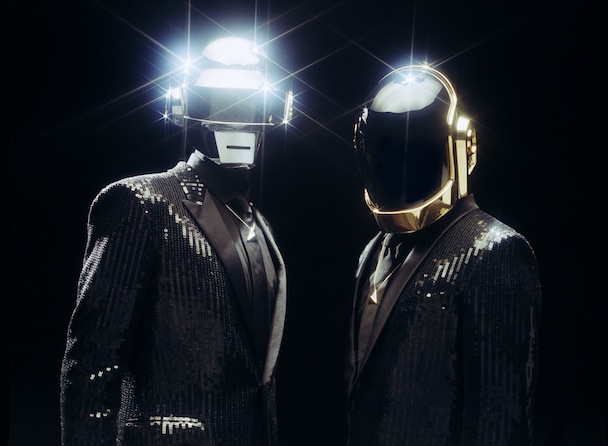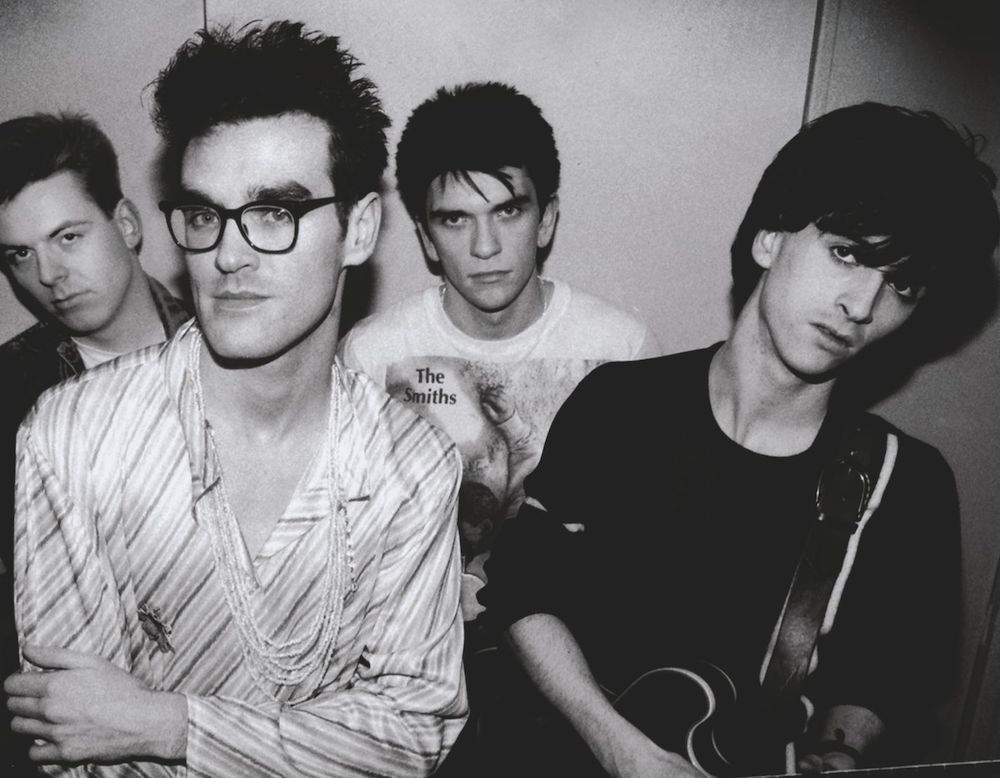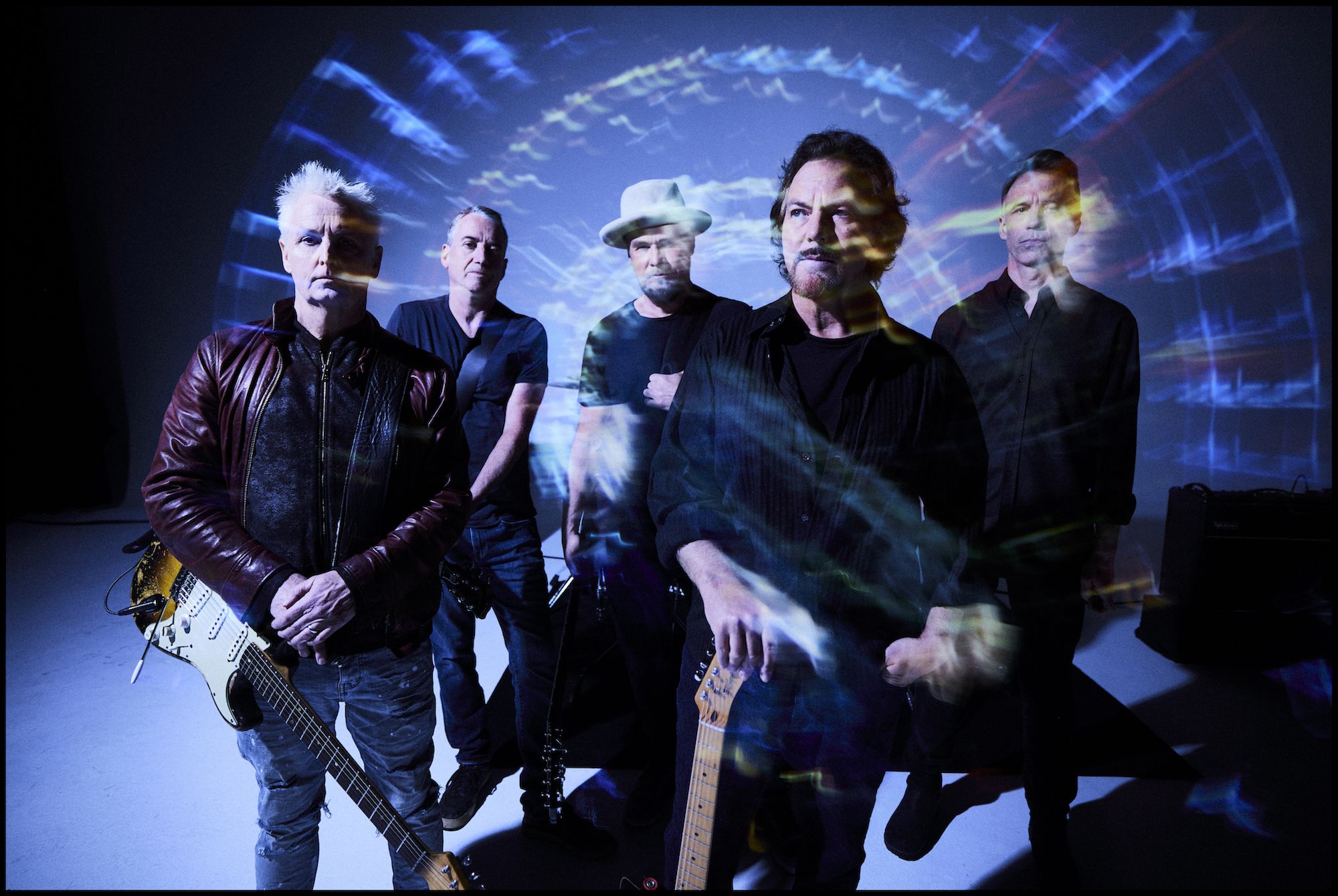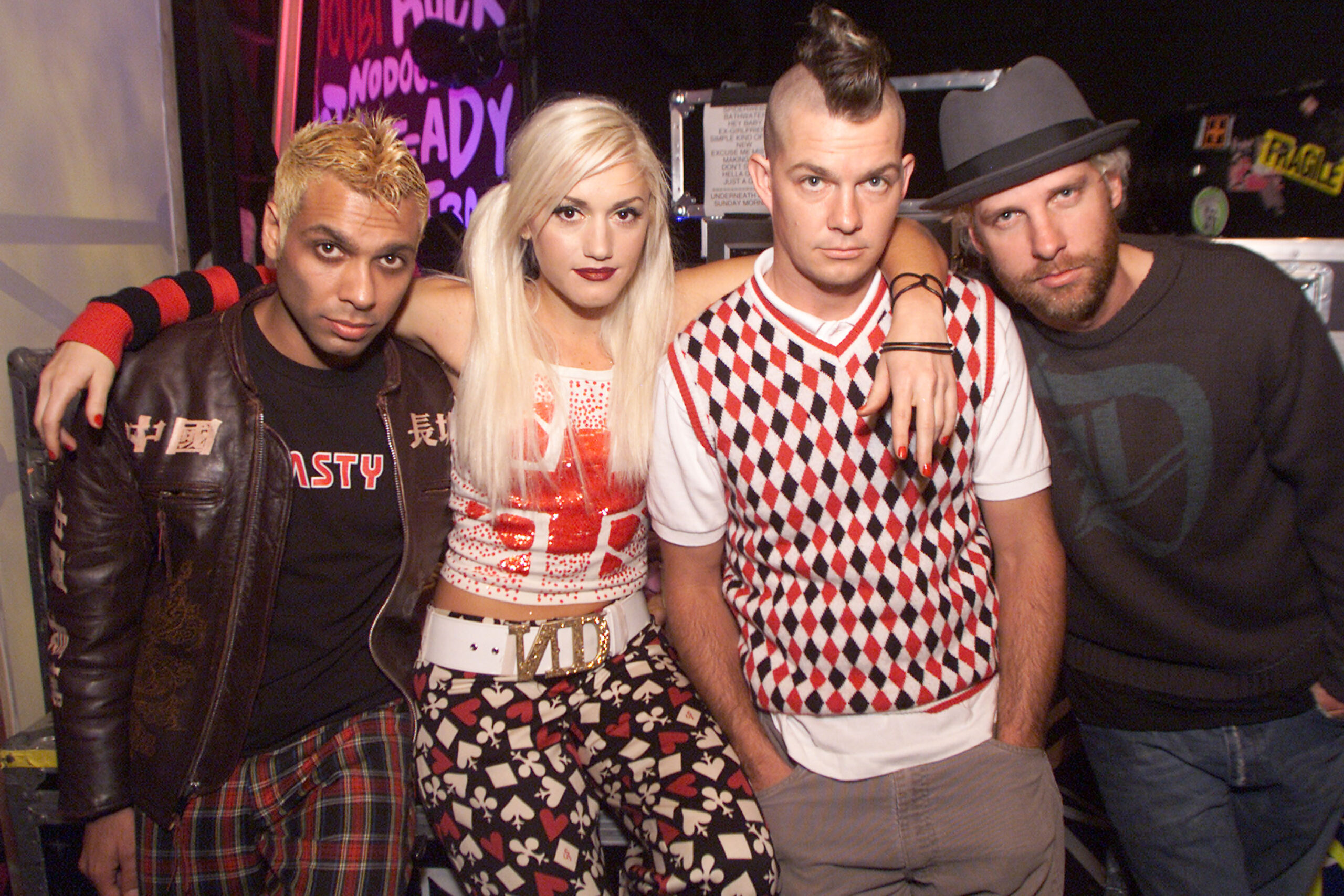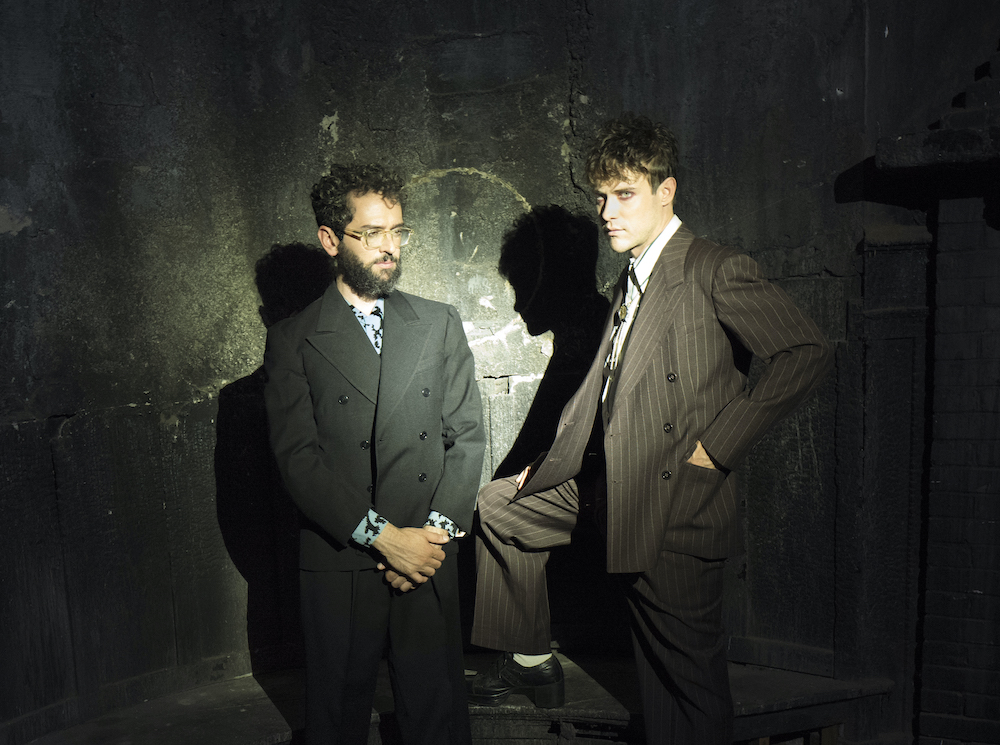In 1992, Daft Punk's once and future idol Brian Wilson said, "It was a childhood dream of mine to make music that made people feel loved." That same year, Thomas Bangalter and Guy Manuel de Homem-Christo formed the indie-rock band Darlin' (named after the Beach Boys song, natch) with Phoenix's Laurent Brancowitz. They signed to Stereolab's label, shared the stage with them a few times, were scorned as "daft punky thrash" by Melody Maker's Dave Jennings, and disbanded. But Wilson retained his hold over Bangalter and Guy-Man, even after they donned masks and then helmets and became the Robots, which have historically had a tenuous relationship with human emotions. Since their sophomore album, Discovery, the human/robot dichotomy and its relationship with that lovin' feeling have been a part of Daft Punk's narrative. One need look no further than songs like "Digital Love," Human After All's "Emotion," or the sad androids of the band's art film Electroma, which self-destruct when their latex human masks melt in the sun. The theme even came up in last week's remix of "Get Lucky": Pharrell sings, "I'm up all night" and Daft Punk's vocoded voices finish "to get lucky," as if the robots want to get in on the action, too.
After 1997's Homework, which drew heavily from Chicago house, Daft Punk took a baby step in the direction they would take over a decade later for Random Access Memories, and Discovery was decidedly warmer and more emotional than their debut. "Too Long" could have been put out by Salsa del Soul in the late '70s, "Superheroes" samples crooner Barry Manilow, and "Something About Us," with its waow-waow synths and adorably French-accented vocals is a straight-up panty-dropper. Most notably, late DJ and producer Romanthony graduates from a cameo in Homework's lockstep, roboticized list of "Teachers" to heavy-breathing lead vocals on "One More Time," which was Daft Punk's highest-charting song until "Get Lucky." It's no coincidence that both songs humanize the dancefloor, giving back life (and love) to the dead-eyed ravers jacking to the beat, trying to get some before the sun comes up. In retrospect, "One More Time" isn't that different—in structure and life-affirming sentiment, at least—from something Will.i.am might have helped produce, while "Get Lucky," with Pharrell and Nile Rodgers, is more classy, old school.
Daft Punk went there for their new album partially in reaction to contemporary electronic music. In their recent cover story interview with Rolling Stone, Bangalter said, "Today, electronic music is like an audio energy drink. Artists are overcompensating with this aggressive, energetic, hyperstimulating music — it's like someone shaking you. But it can't move people on an emotional level." Maybe, he continued, the difference between Daft Punk's new material and Avicii or Skrillex is the same as "between love and sex, or eroticism and pornography." Many of the voices on Random Access Memories are laden with effects, and Daft Punk have admitted they couldn't have made this record without computers, but this time they put that digital love into production value. The strings and slide guitar on "Beyond," "Within," the piano ballad complete with tinkling fallout, and those shiny, sequined suits—this is an album made for courtship and seduction, not sex behind the speakers. Daft Punk did, as they set out to do, outpace their successors and fans who then accused them, somewhat unfairly, of abandoning their "original sound" as of nearly 15 years ago.
The reality is that Daft Punk have been reinventing themselves even before they were Daft Punk. "You can't get any hipper, any more current, any more adventurous, any more courageous, in the world of music, than Daft Punk," Paul Williams said in his earnest segment of The Collaborators, the making-of series that preceded the release of Random Access Memories. (He also lauded Daft Punk for avoiding all the trappings of fame with anonymity, even though their PR campaign was a textbook example of Williams' "hunger for public attention." But I digress.) His song, "Touch," might be the album's most powerful statement of the new Daft Punk. "Touch, where do you lead? I need something more," Williams sings, going back to Daft Punk's belief that when it comes to music, love is better than sex. Bangalter and Guy-Man give him what he needs with Rodgers' chunky guitar and a horn blasts like sun parting the clouds, as the chorus sings, "If love is the answer, you're home." By making Williams feel loved, the Robots have come around to Brian Wilson's childhood dream, and in the process made a song that's indicative of their evolution, and it's not half-bad either.
So with "Get Lucky" having demolished all comers in our Song Of The Summer poll -- and an extended Independence Day weekend nearly upon us -- it's an apt moment to sort through all Daft Punk's songs and pick out the 10 best. Of course, that numeric limitation leaves out more great songs than it includes. Tell us in the comments what would make up your list.
10. "Make Love" (from Human After All, 2005)
Critics largely panned Human After All when it came out. Made in six weeks, paced to work alongside Electroma, and supposedly the result of "pure improvisation," the album comes off cheap and erratic even to the untrained ear. There are a few good songs, but "Make Love" sounds like it got on there by accident, fading in and out so slow it feels soft around the edges and shorter than it actually is. Simple refrains — the barely audible repetition of "make love," slow-motion porno guitars, and a piano alternating between low murmurs and viscous stabs — are a welcome break from the rest of Human's harsh electronics.
9. "Digital Love" (from Discovery, 2001)
On this song, Daft Punk took the chorus to heart and made their dreams come true, playing the same Wurlitzer that Supertramp used on a bridge that was supposed to sound like the '70s prog-rock titans themselves stepped in to noodle around. A few lines bubbling up from below ("Why don't you play the game?") transport the listener to a middle-school dance floor and that sense of childlike wonder the Robots were trying to evoke with an album named Discovery about listening to music at a young age, before we develop the fear of being judged. Bangalter's caterwauling non-guitar solo doesn't fear judgment, either.
8. "Alive" (from Homework, 1997)
"Alive" was originally the final mix of the first single, "New Wave," that Bangalter and de Homem-Christo distributed as Daft Punk in 1993 (to be released a year later). It was the perfect business card to press into the hands Stuart Macmillan, founder of the Scottish techno and house label Soma Quality Recordings — which would go on to produce the first tracks off Homework — at a Nicky Holloway rave at Euro Disney in Paris. "Alive" is one of their most minimal tracks, pumping with relentless piston-like drive that's a raw template of their work to come.
7. "Contact" (from Random Access Memories, 2013)
When "Contact" came out, a lot of internet commenters speculated that the sample of the astronaut talking about the "bright object" that's "rotating because it's flashing" meant that there really was "something out there." Regardless of whether aliens exist (allegedly the object was part of a discarded rocket in orbit) or how on earth Daft Punk got NASA to let them use a transcript from Apollo 17, "Contact" is an impressive starburst of arpeggiated synthesizers that spin faster and faster, spewing off sparks of noise so blinding that it's almost a relief when the tension breaks and the song fizzles to a close.
6. "Television Rules The Nation/Crescendolls" (from Alive 2007, 2007)
It's hard to pick just one medley out of Daft Punk's performance at the Parisian concert hall Bercy on June 14th, recorded for those who weren't there to experience #FOMO for the rest of their lives; but this song in particular plays with expectations: the venue's stupendous sound system gives whole new dimensions to "Television Rules the Nation" (with a tantalizing aside to "Around the World"), but before everyone gets too entranced, the "wee!"s of "Crescendolls" erupt from the speakers. At least we can live vicariously through the audience, who tries to collectively harmonize with everything.
5. "Harder Better Faster Stronger" (from Discovery, 2001)
It's a little sad to think there might be a generation of people who heard "Harder Better Faster Stronger" first on Kanye West's "Stronger," or who didn't know it was originally a Daft Punk song, but no matter. By the time the song gets to the part Yeezus samples, the Frankenstein vocals and jittery cymbals have streamlined into a tight interplay between thought and action—the beat itself becomes harder, better, faster, stronger. So much better, in fact, that the Alive 2007 version won a Grammy Award for Best Dance Recording.
4. "Around The World" (from Homework, 1997)
Even though it's ridiculous, "Around The World" goes hard. That bass line heard 'round the world from Chic's "Good Times," the occasional sweep of a jet taking off, the mummies and skeletons and synchronized swimmers in the Michel Gondry-directed music video, and a melody focused on the repetition of the phrase "around the world" up to 144 times in the original and 80 in the radio edit — it's almost too much. But the underlying framework is effective in its simplicity, bumping and grinding to a playful vamp that's pure Daft Punk.
3. "Da Funk" (from Homework, 1997)
Spike Jonze's iconic music video for the instrumental "Da Funk" is a bit Kafka-esque: a guy tries to do things like buy books and get on a bus, and he can't—not because he's the only one wearing an animatronic dog mask, but because he's carrying a boombox that can't stop, won't stop. It's a possible dream sequence (an alarm clock blares at the very end) that still can't deny the clap-beat that abruptly snaps you into the moment. And "Da Funk" is economical enough to work on multiple levels: the title sounds like "Daft Punk," and "Funk Ad," which closes out Homework, interpolates the central riff.
2. "Get Lucky" (from Random Access Memories, 2013)
Where were you when you saw the Random Access Memories teaser? That taste of the album's first single, "Get Lucky," was almost as good as the binge-listening that catapulted it to the UK's first million-seller of 2013. Rodgers' genre-defining technique is so classic it never gets old, and Pharrell, with his understated falsetto and tossed-off "ha" in the first verse, is so cool he can compare cruising to the "legend of the phoenix" without missing a beat. "Get Lucky," the song and the trailer, was the best possible way to introduce Daft Punk fans to their new favorite band.
1. "One More Time" (from Discovery, 2001)
The original hands-in-the-ay-er jam is also Daft Punk's most iconic. The student becomes the master on this one as one of Bangalter and de Homem-Christo's "Teachers," Romanthony, sings lead vocals to their throbbing 4/4. In a way, "One More Time" is their mission statement. "Our music is not stupid happy house, but it makes people happy," Bangalter once said. The first step away from Homework’s minimalism, Discovery’s opening track is irresistible—who's going to say no to "We're gonna celebrate all night?"—and ephemeral, down to the Cinderella-like church bells that end it.
Listen to this playlist on Spotify here.
